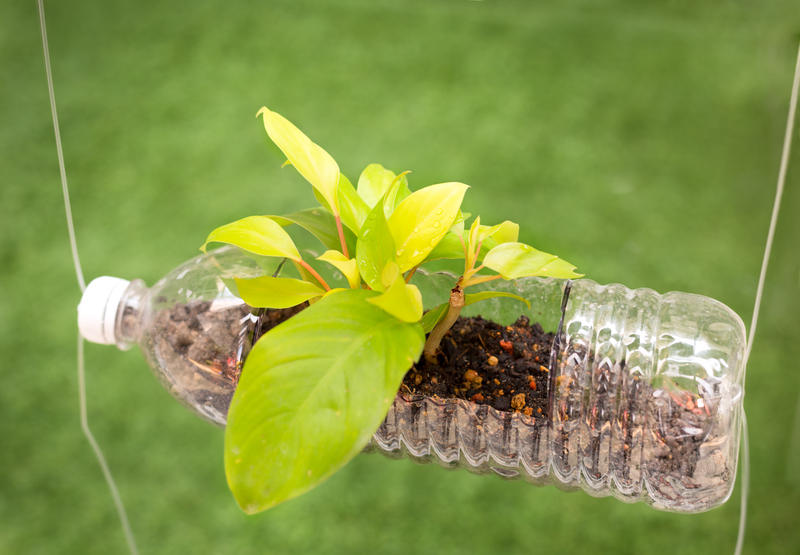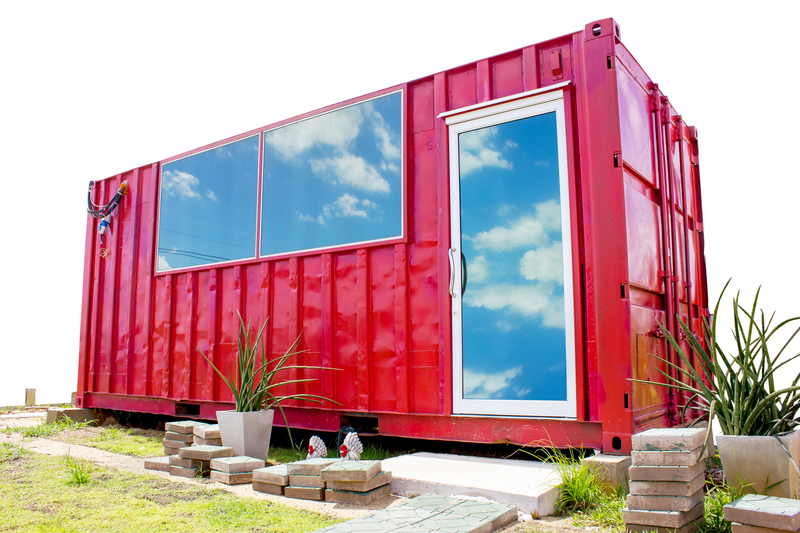Bulky Waste Disposal Hacks That Can Keep More Money in Your Pocket
Battling with mountains of old furniture, broken appliances, or piles of garden waste? Bulky waste can quickly overrun your space and cost a small fortune to dispose of. But what if you could manage your bulky junk and save money at the same time?
In this comprehensive guide, you'll discover practical, smart, and sometimes overlooked bulky waste disposal hacks that help keep more money in your pocket, reduce environmental impact, and even clear up valuable space in your home or business. Whether it's through selling, recycling, or clever upcycling, we'll reveal everything you need to know about affordable and efficient ways to remove large, unwanted waste.
Understanding Bulky Waste: What Are Bulky Items?
Before diving into tips and hacks, let's clarify what is considered bulky waste:
- Large furniture (sofas, mattresses, wardrobes)
- Appliances (washing machines, fridges, ovens)
- Carpets and rugs
- Large garden waste (branches, old play equipment)
- Old bikes and exercise equipment
- Building debris on a small scale (bathtubs, sinks)
These are all items that don't fit in your regular trash bin or are forbidden in curbside pickup. Disposing of such items isn't always straightforward--and can get pricey quickly! But with the right hacks, you can put your cash to better use.

Top Bulky Waste Disposal Hacks That Save You Money
1. Sell or Give Away Items Online
One of the best ways to dispose of unwanted bulky items is to turn them into cash (or at least save on disposal costs). Thanks to the internet, there are countless places to sell bulky items or give them away for free!
- List on Online Marketplaces: Use platforms like Facebook Marketplace, Craigslist, Gumtree, or eBay Local. Many people look for affordable, secondhand furniture or appliances. Even if your item isn't perfect, DIY enthusiasts often snap up fixer-uppers!
- Offer for Free: If you can't sell, try Freecycle, Nextdoor, or a local "Buy Nothing" group. Many people are willing to collect large items for free.
Not only do you save on landfill fees or collection costs, but you might earn extra cash while decluttering.
2. Upcycle or Repurpose Old Bulky Waste
Upcycling is a creative way to transform "junk" into something useful, beautiful, or even valuable. For example:
- Old Pallets: Turn pallets into garden furniture, planters, or even wall art.
- Worn Sofas or Chairs: With a bit of fabric and tools, they can get a second life or be used in a garden shed.
- Broken Appliances: Salvage metal, shelves, or glass panels for other projects.
This approach doesn't just save money--it adds value to your home or garden!
3. Use Your Council's Free or Low-Cost Collection Service
Most cities and municipalities offer special bulky waste collection services. While some may charge a small fee, others provide a couple of free collections each year per household.
- Check your municipality's website to see how many items you can dispose of for free.
- Book in advance--slots often fill up quickly, especially during spring or after the holidays.
- Combine your collection with neighbors to split costs if charges apply.
This method is typically far cheaper (sometimes completely free) compared to hiring a private skip or junk removal service.
4. Bulk Drop-Off Days and Community Clean-Ups
Many communities organize periodic bulky waste drop-off events or "clean-up days." These allow residents to bring large items to a central location, often for free or a nominal fee.
- Keep an eye on local council bulletins or social media for event announcements.
- Take advantage of these days to clear out multiple items at once--saving you repeated trips or separate fees.
5. Rent or Share a Skip with Neighbors
Skip hire is convenient for extensive decluttering, renovations, or garden clear-outs. But hiring a skip just for yourself can be expensive.
- Combine with neighbors: Arrange to fill a skip together and split the cost. This significantly reduces your share of the fee.
- Choose the right size: Don't overestimate. A smaller skip saves you money--and limits overfilling charges.
6. Dismantle for Easier (and Cheaper) Disposal
Many waste removal services charge by volume or weight. By dismantling bulky items, you can fit more into your car, bin or skip, or reduce the volume for collection:
- Break down furniture (tables, beds) with a screwdriver or saw.
- Remove doors and drawers from cabinets to make them flat-packable.
- Separate recyclable materials like metal or glass from general waste.
Pro tip: Many recycling centers have separate containers for wood, metal, and electronics--so sorting beforehand can mean lower or zero fees!
7. Visit Your Local Recycling Center
Did you know that many recycling centers accept bulky items for free or for a small charge? Before booking a costly removal, check your local tips or recycling depots:
- Most will take furniture, appliances, mattresses, and carpet.
- Some recycling centers recycle or repurpose e-waste (old TVs, computers, fridges).
- Plan your visit: Not all centers accept every item, so call ahead or check their rules online.
8. Donate to Charity or Nonprofit Organizations
Charities and social enterprises are often glad to receive usable bulky items. Some common options include:
- Furniture banks
- Habitat for Humanity Restore
- Salvation Army or Goodwill stores (check local policies)
Many organizations offer free pick-up services--a win-win for everyone. Donating helps others, prevents waste, and saves you the potential cost of paid removal.
9. Avoid Hidden Fees: Know the Rules
Avoid costly surprises! Many councils or junk haulers charge extra for certain items (e.g., mattresses, fridges due to hazardous materials). Make sure:
- You know exactly what's allowed in curbside bins.
- Check for any 'waste type' fees before arranging a collection.
- Remove hazardous components (batteries, chemicals) as per local guidelines.
If you dispose of banned items incorrectly, you might face fines or extra fees!
10. Consider Appliance or Furniture Retailer Take-Back Schemes
Are you replacing a large item? Many retailers offer free or subsidized removal of your old furniture or appliance when delivering a new one. This can save you money and hassle:
- Ask about take-back deals before buying.
- Some stores recycle items responsibly, giving you peace of mind.
11. Tap Into Local Social Media Groups
It's amazing how quickly things can go with the power of the community! Try posting in neighborhood Facebook groups or on Nextdoor:
- Someone might need a spare mattress, old chair, or even broken items for repair projects.
- Arrange for easy, free collection by someone in your own neighborhood.
Environmental and Financial Benefits of Smart Bulky Waste Disposal
Reducing your costs isn't the only benefit of these hacks. The right bulky item disposal strategy also helps:
- Preserve landfill space by diverting reusable or recyclable materials.
- Minimize environmental impact by finding new uses for old items or recycling efficiently.
- Support the local economy when you sell, donate, or give away unwanted goods.
- Build community connections and help neighbors in need.
Common Mistakes to Avoid During Bulky Waste Removal
Even with the best bulky waste disposal hacks, it's easy to trip up if you're not careful. Some missteps can cost you--not just money but also time and effort. Here are the top mistakes to watch out for:
- Paying for removal before exploring free options.
- Ignoring your local recycling center's rules, resulting in being turned away or facing fees.
- Failing to plan--missing out on free collection days or leaving things to the last minute.
- Attempting illegal dumping ("fly-tipping")--which can result in heavy fines.
- Putting hazardous items in with general bulky junk (batteries, paint, chemicals).
A little research upfront will always help you avoid misunderstandings, costs, or environmental harm.
Quick Reference: The Ultimate Bulky Waste Disposal Checklist
Before tossing out your bulky waste--use this checklist to maximize savings and do it responsibly:
- Can it be fixed, reused, or upcycled? If yes, consider a DIY project or repair.
- Is it valuable? Could it be sold? Try online marketplaces first.
- Is donation an option? Contact local charities or furniture banks.
- Check free council or community collection services.
- Look for upcoming bulk waste drop-off events.
- Dismantle large items for easier, neater disposal or recycling.
- Sort materials (metal, wood, textiles, electronics) for recycling center drop-offs.
- Before hiring a skip--can you share or split the cost with neighbors?
- Review your chosen disposal method's rules--avoid prohibited items or surprise charges.
- Keep documentation/receipts if using a paid service--proof may be needed if items are fly-tipped improperly.

Frequently Asked Questions About Bulky Waste Disposal
Can I leave bulky items on the curb for standard trash pickup?
Most regular trash collection services do not accept bulky items. Placing them on the curb without prior arrangement can lead to fines. Always check with your council about specific bulky waste pickup services.
What's the most cost-effective bulky waste removal method?
Selling, donating, or using free council/community collection are generally the cheapest. Paid options like skip hire or professional junk removal are most expensive--so exhaust free or low-cost alternatives first.
Is it illegal to dump bulky waste?
Yes. Illegal dumping (fly-tipping) is a crime and can result in hefty fines or prosecution. Book proper collection or take your bulky waste to an approved site.
Can I recycle mattresses, sofas, and electrical items?
Many recycling centers accept these items for proper disposal or recycling. Some have separate bins or areas for each. Check ahead to see what your local site accepts.
What happens to my bulky waste after removal?
Depending on your chosen service, it may be sorted for recycling, donated to those in need, or disposed of in a landfill. Always ask your provider for details to ensure your waste is handled responsibly.
Conclusion: Save Money and Make a Difference with Smart Bulky Waste Disposal
Getting rid of bulky, unwanted items doesn't have to cost a fortune--or harm the planet. By leveraging these bulky waste disposal hacks, you'll not only keep more money in your pocket, but also contribute to a cleaner home and healthier environment.
- Sell, donate, or give away useful items first.
- Explore low-cost or free community services.
- Recycle or upcycle what you can.
- Plan ahead to avoid fees and hassles.
With a little planning, creativity, and smart choices, bulky waste removal can become an opportunity--not just another expensive chore!
Start today and discover just how easy and affordable clearing out large items can be!
